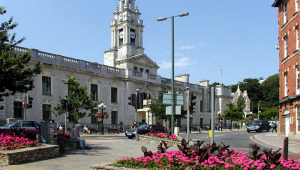Its National Emergency Pressures Panel said the NHS had been under sustained pressure over the Christmas period with high levels of respiratory illness and limited capacity to deal with demand surges.
There were also early indications of an increasing number of cases of flu and some a rise in the severity of illness among patients arriving at accident and emergency departments.
The panel extended the deferral of all non-urgent inpatient elective care to 31 January, though said cancer operations and time-critical procedures should go ahead as planned.
It also deferred day-case procedures and routine outpatient appointments where this would release clinical resources for more urgent cases.
These would be reallocated to allow for triage by consultants on arrival at accidental and emergency departments, and make consultants available to advise general practitioners by phone.
There would also be more resources for ambulatory care and clinics as alternatives to hospital admissions, and a twice-daily review of all patients to facilitate discharge.
Clinical commissioning groups have been told to suspend the sanctions normally imposed on hospitals for mixed accommodation in single gender wards.
Panel chair Sir Bruce Keogh said: “I want to thank NHS staff who have worked incredibly hard under sustained pressure to take care of patients over the Christmas.
“We expect these pressures to continue and there are early signs of increased flu prevalence. The NHS needs to take further action to increase capacity and minimise disruptive last minute cancellations.”
Saffron Cordery, director of policy and strategy at NHS Providers, said the panel’s recommendations were “sensible and proportionate”.
“Many [NHS trusts] dealing with unprecedented demand, reflecting the recent rise in cases of flu and respiratory illness, the impact of norovirus and – in some places – primary care including GPs working at more than full stretch.”
Niall Dickson, chief executive of the NHS Confederation, which represents organisations across the healthcare sector, said: “The NHS is under enormous pressure and this decision simply reflects that reality.
“Our members warned repeatedly that this winter was likely to put an already stretched system under intolerable strain. Something has to give and this move - although unpalatable - makes sense.”
NHS England also released comments from England’s chief nurse Jane Cummings yesterday calling on patients and the public to use the NHS responsibly this year.
She said almost 8m hospital appointments were missed every year - not including appointments cancelled in advance – which equated to almost £1bn, with each outpatient appointment costing the NHS about £120 in 2016-17.
Cummings added that more than 9m people went home from A&E in 2016-17 with just guidance and advice.
“With the NHS coming under pressure as never before, we are asking patients and the public to use the health service responsibly to help ensure that care is readily available for everyone who needs it,” she said.
She called for people to cancel appointments in “good time”.
Cordery also said it was “right to highlight the advice for people who are seeking advice for non-emergencies, so staff in A & E can focus on the sickest patients”.










